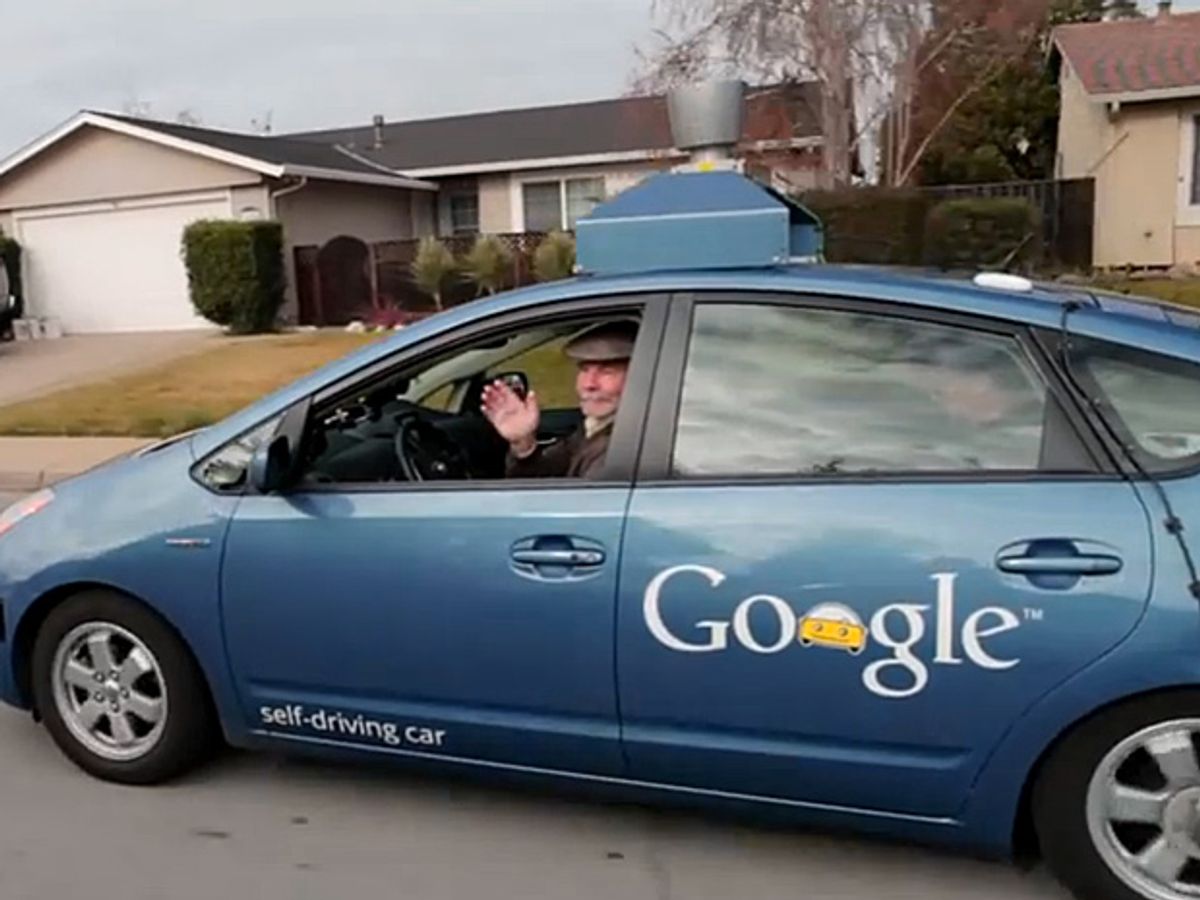U.S. federal officials apparently like what they see in self-driving cars: their potential to operate more safely and fuel-efficiently than the vast majority of human drivers. These huge possible benefits prompted the National Highway Traffic Safety Administration to give a cautious green light to the autonomous driving projects of automakers and technology companies.
The federal agency's endorsement of self-driving car technology came during the Connected Car Expo held ahead of the Los Angeles Auto Show this week, according to the Wall Street Journal. But they made sure to emphasize caution and restraint. Kevin Vincent, chief counsel of the NHTSA, told conference attendees that it would be "premature" for automakers to put autonomous vehicles on the road immediately.
Vincent's caution was echoed in Washington by David Strickland, head of the NHTSA, who told a Congressional subcommittee that self-driving cars won't hit the road anytime soon, except for test drives. Still, major automakers such as Nissan have suggested they could have autonomous cars ready for dealerships by 2020.
Self-driving cars offer more than added convenience during a driver's work commute. . Widespread use of fully autonomous vehicles could slash annual costs related to road accidents by $488 billion and save $158 billion in fuel costs as part of $1.3 trillion in total savings for the U.S., according to a recent Morgan Stanley study. Get enough of them on the road, and you might even reduce traffic jams or end highway congestion.
Google's self-driving car tests have sparked the public's interest and excitement about the technology in recent years. But the Internet giant is still moving cautiously in figuring out how to market the technology and deal with related challenges, according to the Wall Street Journal. Ron Medford, director of safety for Google's autonomous car project and former deputy administrator at the NHTSA, told the Connected Car Expo attendees that the auto industry must prepare to deal with fallout from accidents involving autonomous cars.
One glimpse of such possible complications comes from the "runaway cars" cars controversy—an issue involving complaints of sudden unintended acceleration in Toyota vehicles from summer 2009 through spring 2010. In that case, NHTSA ruled out the electronic throttle control systems as the culprit. But the controversy still highlighted the potential pitfalls involved in regulating complex vehicles.
The NHTSA is not alone in readying for the future. Nevada, Florida, California and the District of Columbia have already begun setting ground rules for the operation of self-driving cars.
Rather than leap ahead into the unknown, automakers anticipate a gradual rollout of driver assistance technologies capable of handling stop-and-go traffic, parallel parking or long stretches of highway driving. Car events such as the Frankfurt Motor Show have showcased even more advanced technologies such as Bosch's emergency autonomous braking system and Ford's obstacle avoidance system that automatically steers around obstacles in the road.
Such piecemeal deployment of autonomous car technologies may disappoint drivers ready to plunk down thousands of dollars extra for their self-driving car of the future. But it could also give automakers the time and confidence needed to road-test each technology before unveiling the full autonomous car package—and that seems just fine for U.S. regulators.
Jeremy Hsu has been working as a science and technology journalist in New York City since 2008. He has written on subjects as diverse as supercomputing and wearable electronics for IEEE Spectrum. When he’s not trying to wrap his head around the latest quantum computing news for Spectrum, he also contributes to a variety of publications such as Scientific American, Discover, Popular Science, and others. He is a graduate of New York University’s Science, Health & Environmental Reporting Program.



